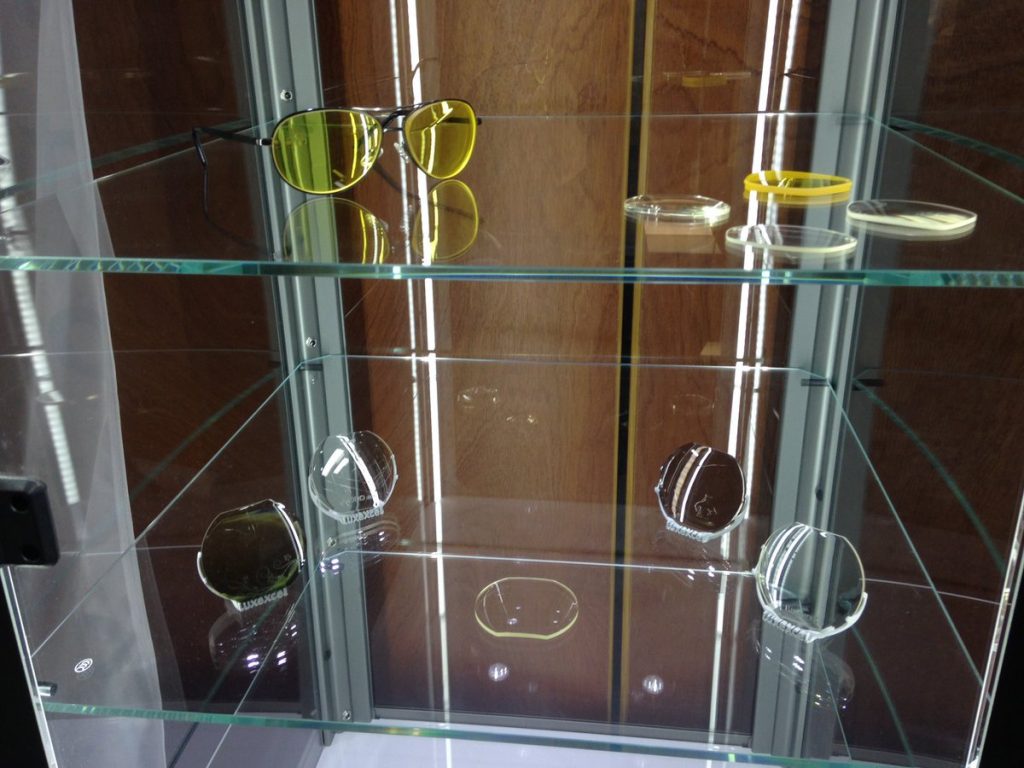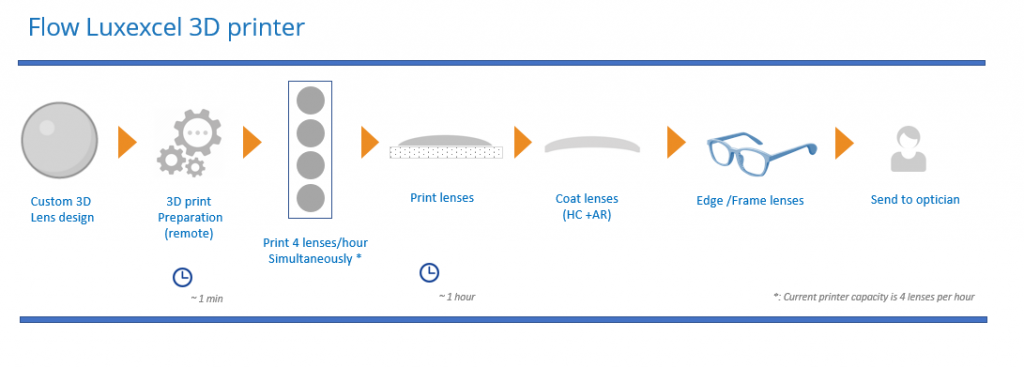Belgian 3D printed optics specialist Luxexcel is closing a successful 2017 with the confirmed installation of two Luxexcel VisionPlatform products to locations in the U.S. The package, containing Luxexcel’s VisionEngine lens 3D printer and operating software, has been supplied to IFBSolutions in North Carolina, and will reach Florida’s Quest Vision Care Specialty Lab in January 2018.
With the addition of these systems, each facility will be capable of making custom eyeglasses catering to a variety of opthalmic conditions.

Success in 2017
Earlier this year Luxexcel received $10 million in funding for its 3D printed lenses from a number of new and existing investors in America and Europe. The first installation of the VisionPlatform was made at Winston-Salem’s IFBSolutions mid-November 2017.
More recently, the company confirmed that it has signed an agreement with Quest Vision Care Specialty Lab in Florida, defined by the company’s President and Founder Michael Walach as “the lab in the industry for specialty lenses.”
Expanding the customer base
The agreement with Quest Vision is designed to extend the reach of Luxexcel’s VisionPlatform solution to the firm’s respective sites across the U.S. and 16 other countries around the world. Guido Groet, CCO of Luxexcel comments, “With Quest we have found a partner that will maximize the benefits of our Luxexcel VisionPlatform™ by printing custom RX lenses for non-mainstream applications.”
At Quest Vision, Walach adds, “The flexibility the Luxexcel VisionPlatform™ offers, empowers us to provide completely customized ophthalmic specialty lenses made to the measure.”
Lens 3D printing technology
3D printing technology used inside the Luxexcel VisionEngine is based on the vat polymerization process, using a photocurable, acrylic resin as the primary feedstock. The method is capable of making unique lenses at a rate of up to four lenses per hour which are then coated and framed for the wearer.

One key advantage of this process when compared to the traditional subtractive methodology is that it does not waste any base materials.

A new wave of corrective technology
A demand for custom lenses is created by a number of complex eye problems. Meridional aniseikonia, a condition that affects a person’s perception of images, and crossed eyes, are just two examples that can be corrected with specially made lenses. Prism and quatrofocals can also be made with the process.
Walach concludes, “The Luxexcel equipment can simply address patient needs for vocational, lifestyle or special prescription requirements which cannot be produced with existing production technologies.”
Stay up to date with the latest 3D printing developments – sign up to the 3D Printing Industry newsletter, follow us on Twitter, and like us on Facebook.
Get involved with 3D printing events near you here.
Featured image shows Luxexcel 3D printed lenses. Photo via Luxexcel


